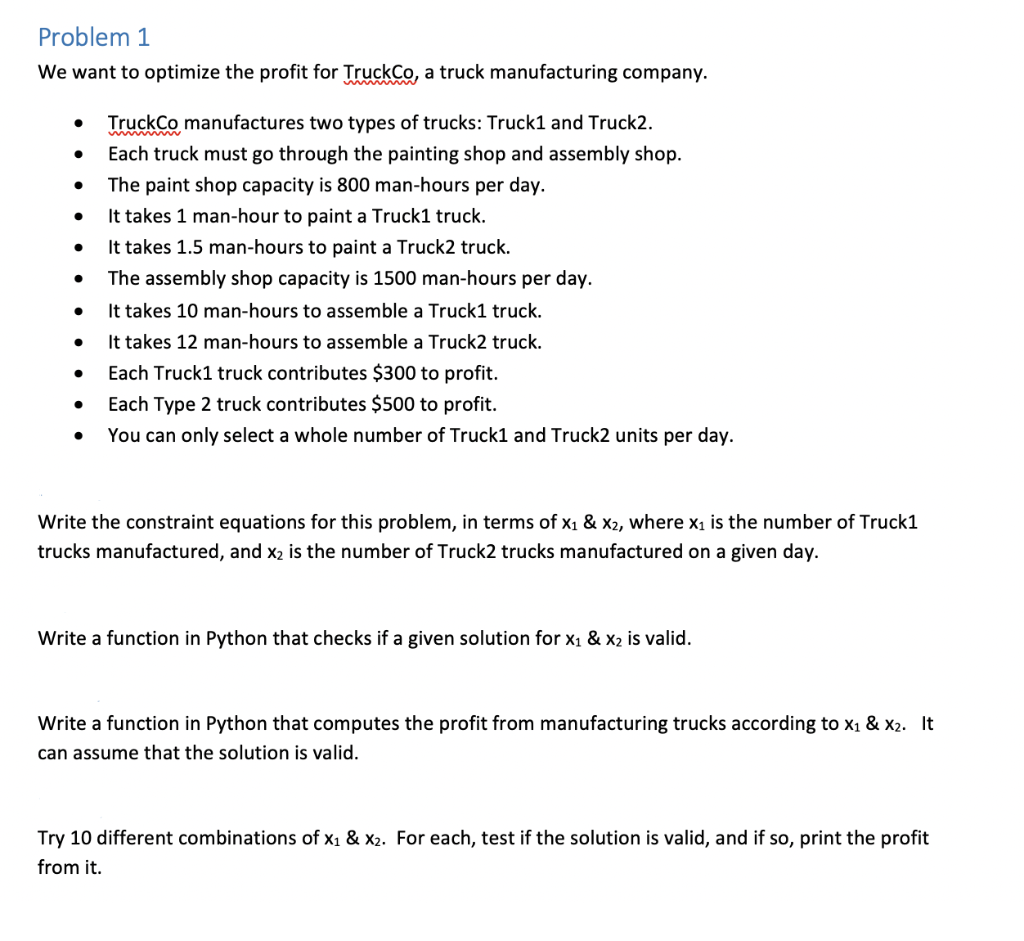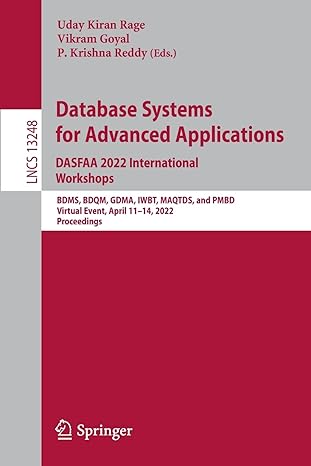
Problem 1 We want to optimize the profit for Truckco, a truck manufacturing company. . . . TruckCo manufactures two types of trucks: Truck1 and Truck2. Each truck must go through the painting shop and assembly shop. The paint shop capacity is 800 man-hours per day. It takes 1 man-hour to paint a Truck1 truck. It takes 1.5 man-hours to paint a Truck2 truck. The assembly shop capacity is 1500 man-hours per day. It takes 10 man-hours to assemble a Truck1 truck. It takes 12 man-hours to assemble a Truck2 truck. Each Truck1 truck contributes $300 to profit. Each Type 2 truck contributes $500 to profit. You can only select a whole number of Truck1 and Truck2 units per day. . . . . Write the constraint equations for this problem, in terms of Xi & X2, where x1 is the number of Truck1 trucks manufactured, and x2 is the number of Truck2 trucks manufactured on a given day. Write a function in Python that checks if a given solution for X1 & X2 is valid. Write a function in Python that computes the profit from manufacturing trucks according to X1 & x2. It can assume that the solution is valid. Try 10 different combinations of x1 & X2. For each, test if the solution is valid, and if so, print the profit from it. Problem 1 We want to optimize the profit for Truckco, a truck manufacturing company. . . . TruckCo manufactures two types of trucks: Truck1 and Truck2. Each truck must go through the painting shop and assembly shop. The paint shop capacity is 800 man-hours per day. It takes 1 man-hour to paint a Truck1 truck. It takes 1.5 man-hours to paint a Truck2 truck. The assembly shop capacity is 1500 man-hours per day. It takes 10 man-hours to assemble a Truck1 truck. It takes 12 man-hours to assemble a Truck2 truck. Each Truck1 truck contributes $300 to profit. Each Type 2 truck contributes $500 to profit. You can only select a whole number of Truck1 and Truck2 units per day. . . . . Write the constraint equations for this problem, in terms of Xi & X2, where x1 is the number of Truck1 trucks manufactured, and x2 is the number of Truck2 trucks manufactured on a given day. Write a function in Python that checks if a given solution for X1 & X2 is valid. Write a function in Python that computes the profit from manufacturing trucks according to X1 & x2. It can assume that the solution is valid. Try 10 different combinations of x1 & X2. For each, test if the solution is valid, and if so, print the profit from it







